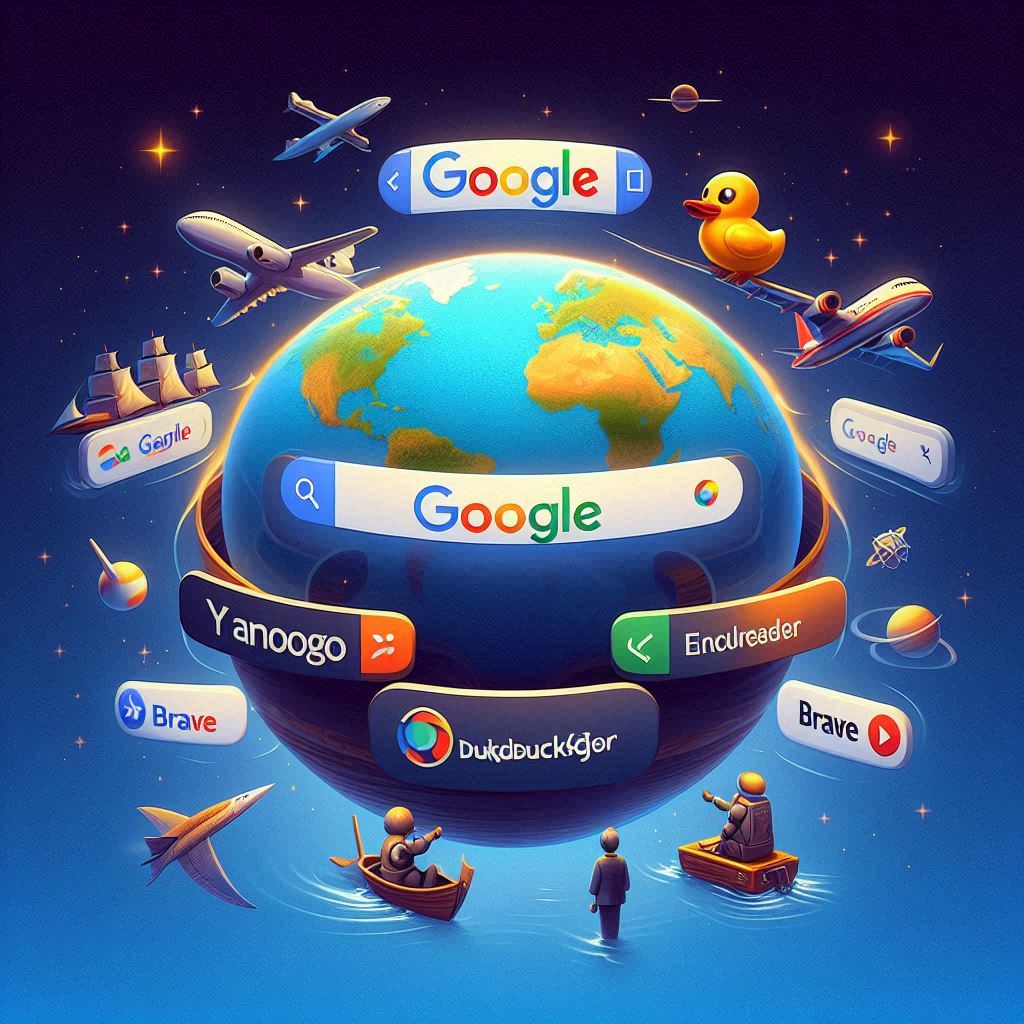Best search engines of 2024
July 2, 2024 - Reading time: 6 minutes
1: Google Search
Google Search is the prime tool for obtaining fast answers to your queries. Its comprehensive coverage, relevance, speed, and user-friendly interface make it a preferred choice for millions of users worldwide. The simple and intuitive design ensures ease of use, and searches typically yield instant results. However, one major disadvantage is that search results are influenced by various advertising features.
2: Baidu
Baidu is China's largest search engine, dominating the Chinese market with features tailored to the Chinese language and culture. English-speaking users can also utilize Baidu to find interesting alternatives to Google.
3: Yandex
Yandex is Russia's leading search engine, offering localized search results and services such as maps, news, and email. It is also user-friendly for English speakers. Notably, its search results often differ significantly from those of Google and Bing.
4: Bing Search
Bing Search is Microsoft's search engine product. Bing allows users to search using images or screenshots and has tight integration with Microsoft products, making it particularly useful for Microsoft users. However, Bing's search features are slower and less customizable compared to Google. A notable disadvantage of Bing is censorship of web content. One can easily see this by searching "handwiki", which is one of the largest open science encyclopedias, and you will not find a single article. If such an issue is reported to the Microsoft community forum, responses typically involve basic troubleshooting (like clearing the browser cache), indicating a lack of advanced support.
5: DuckDuckGo (search results are identical to Bing)
DuckDuckGo is another search engine known for its simple, user-friendly interface and strong focus on privacy. This is especially important for users concerned about privacy violations by big tech companies. Technically, DuckDuckGo's search results are identical to those of Bing, since DuckDuckGo uses the same Bing database. This directly impacts DuckDuckGo users as any bugs in Bing's database or missing websites resulting from Bing's censorship attempts can affect them. Obviously, this raises some questions about DuckDuckGo's usefulness for users.
6: Yahoo Search (search results are identical to Bing)
Although its popularity has declined in recent years, Yahoo Search still attracts users through its integration with Yahoo's other services like news, mail, and finance. However, the search results are identical to Bing since it also uses the exactly same Bing database. This again raises some questions about its distinct value for web users.
7: Brave Search
Brave search has a simple and fast interface, and the results are very different from the group of search engines based on Bing (i.e. DuckDuckGo and Yahoo). It has fast outputs of search results, and no obvious bugs or attempts to censor the web content were detected.
8: Searches in encyclopedias
Not many people use the traditional general search engines to find knowledge-related content since their results are distorted by advertisements and various search-engine optimization (SEO) methods of commercial companies to attract visitors. For those who are interested in encyclopedic content, rather than in general web pages, EncycloReader (or EncycloSearch) is an excellent choice. One can even use the EncycloSphere Chrome extension to read open-source encyclopedias. Unlike Google and Microsoft, EncycloReader and EncycloSearch do not display ads, do not tailor search results based on perceived user interest, and are not affected by content censorship, like you may detect in Bing/Microsoft. EncycloReader/EncycloSearch scans dozens of encyclopedias with diverse publication policies, providing a good chance to encounter varied opinions and a neutral point of view.
Summary
According to our tests, Bing, DuckDuckGo and Yahoo search engines are totally identical, so they can be considered as a single search engine with different user interfaces. As such, they share the same problems - restrictions on general web content and weak technical support. Tailoring search results to fit Microsoft's perspective of 'what is right' diminishes the value of the Bing (= DuckDuckGo and Yahoo) product compared to other search engines. Google, Brave, Baidu, and Yandex search engines are the most useful since they lead to different search results and do not have noticeable bugs.
D.Kish (nbrush[AT]jwork.org)

